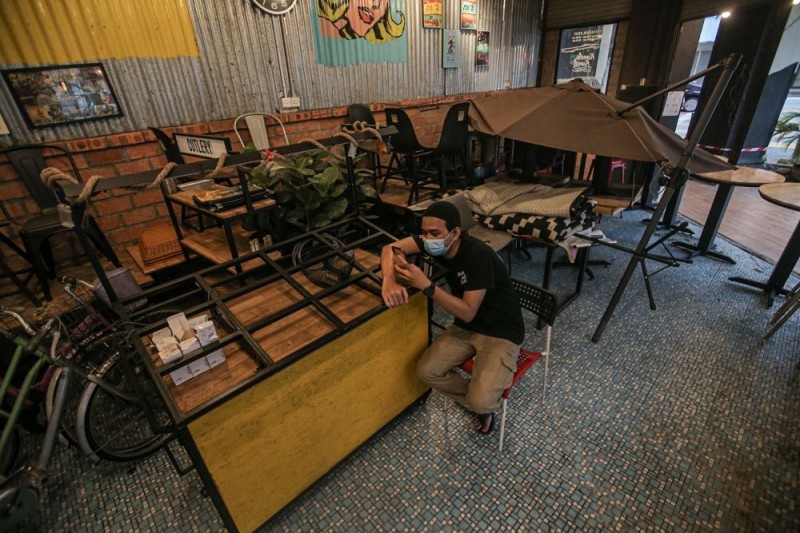
Image credit: Malay Mail
At Table & Apron restaurant, business has been picking up during the past several months as customers return for the signature dishes including sticky pork ribs and fried chicken.
“Business has gone back up,” says owner Marcus Low, who opened Table & Apron seven years ago. “We have people knocking on doors or making reservations or saying I want to come and dine at your restaurant, so we’re definitely seeing that come back.”
The restaurant, which offers a mix of Western and Asian dishes, struggled for almost two years with revenue down about 70% after the start of the pandemic. But as business picks up again, Low can’t fully capitalize on it because he’s understaffed by 25%.
“We can’t accommodate a lot of guests simply because we’re short staffed,” Low says. “That means we have to change our operating times as well.”
The restaurant reduced seating and stopped serving lunch on weekdays, which Low says is reducing revenue by 15%. “We can’t let our staffing situation compromise our customers’ experience,” he says.
Staffing shortages are an issue at eateries and retail stores across Malaysia. On a trendy block in Kuala Lumpur, Malaysia’s biggest city, four cafes recently posted hiring signs.
“It definitely is a common problem amongst the food and beverage and also the retail sector in finding staff in Malaysia,” says Raymond Woo, vice chairman of the Federation of Malaysian Business Associations. “They’re struggling to find workers.”
In some cases, these jobs used to be filled by foreigners who have returned to their home countries since the start of the pandemic. Also, many restaurants and retail stores used to employ a lot of local university students and recent graduates who were easy to replace if they left, but not anymore.
“A lot of these young workers want work that’s online and remunerated online,” says Woo.
Low says that’s the route some of his former employees have taken and moved to digital jobs in the gig economy. “Jobs where it grants them more flexibility, gives them the ability to control when they want to work,” he says. “Working on weekends at restaurants doesn’t seem to be as attractive now.”
Mikhaela Panachery is 23 and graduated from university last year. Her bedroom doubles as her office, where she promotes products on social media working 25 hours per week and earning the equivalent of about $350 (USD) per month, similar to what she could earn working in a cafe.
“It’s so great because if I want an off day, let's say on the same day, I can just take an off day. But if I was working in a cafe or retail store, I would have to put in maybe a week’s notice with my boss and I would also have to get someone else to cover my shift,” Panachery says. “But because I’m doing a digital thing, I can just take an off day whenever I want.”
Panachery says she also likes the independence of essentially working for herself rather than for someone else’s business. “I think the bottom line is the young people have just more options these days,” adding, “They don’t have to work in a physical store. They can just start working from home.”
Woo of the Federation of Malaysian Business Associations says the food and beverage and retail industries need to become more appealing to young workers.
“One way is perhaps to partner with universities and colleges with internships,” Woo says. “A program that could put the students on track for management positions.”
Low, the owner of Table and Apron restaurant, says the staffing issue is likely to persist, but he has taken steps to become more competitive at attracting workers by raising wages about 15%.
“While we have seen some people leave the food and beverage industry during the pandemic, there are some workers who’ve shown an interest in transitioning to it from other careers,” Low says. “Some people are exhausted with working from home and want to get involved with a team environment and we want to capitalize on that segment.”
Source: https://www.voanews.com/a/malaysian-businesses-struggle-with-staffing-shortages-/6489663.html

